Books
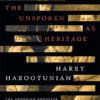
The Unspoken as Heritage: The Armenian Genocide and Its Unaccounted Lives
By Harry Harootunian. In the 1910s historian Harry Harootunian’s parents Ohannes and Vehanush escaped the mass slaughter of the Armenian genocide, making their way to France, where they first met, before settling in suburban Detroit. Although his parents rarely spoke of their families and the horrors they survived, the genocide and their parents’ silence about…
Read more
Reluctant Interveners: America’s Failed Responses to Genocide from Bosnia to Darfur
By Eyal Mayroz. Why do we allow our governments to get away with “bystanding” to genocide? How can we, when alerted to the mass slaughter of innocents, still not take a stand? Reluctant Interveners provides the most comprehensive answers yet to these confronting questions, focusing on the complex relationships between the citizenry, the media, the political elites,…
Read more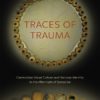
Traces of Trauma: Cambodian Visual Culture and National Identity in the Aftermath of Genocide
By Boreth Ly. How do the people of a morally shattered culture and nation find ways to go on living? Cambodians confronted this challenge following the collective disasters of the American bombing, the civil war, and the Khmer Rouge genocide. The magnitude of violence and human loss, the execution of artists and intellectuals, the erasure…
Read more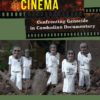
Perpetrator Cinema: Confronting Genocide in Cambodian Documentary
By Raya Morag. Perpetrator Cinema explores a new trend in the cinematic depiction of genocide that has emerged in Cambodian documentary in the late twentieth- and early twenty-first centuries. While past films documenting the Holocaust and genocides in Yugoslavia, Rwanda, and elsewhere have focused on collecting and foregrounding the testimony of survivors and victims, the intimate…
Read more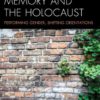
American Public Memory and the Holocaust: Performing Gender, Shifting Orientations
By Lisa A. Costello. The recent rise of global antisemitism, Holocaust denial, and American white nationalism has created a dangerous challenge to Holocaust public memory on an unprecedented scale. This book is a timely exploration of the ways in which next-generation Holocaust survivors combine old and new media to bring newer generations of audiences into…
Read more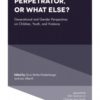
Victim, Perpetrator, or What Else? Generational and Gender Perspectives on Children, Youth, and Violence
Edited by Doris Bühler-Niederberger and Lars Alberth. Children, while being the most victimised group in society, rarely become a topic of sociological research, neither as victims nor as perpetrators. The sociological discussion on power and violence happens beyond generation as an important dimension of social structure, and in many respects also beyond gender aspects that…
Read more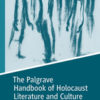
The Palgrave Handbook of Holocaust Literature and Culture
Edited by Victoria Aarons and Phyllis Lassner. The Palgrave Handbook of Holocaust Literature and Culture reflects current approaches to Holocaust literature that open up future thinking on Holocaust representation. The chapters consider diverse generational perspectives—survivor writing, second and third generation—and genres—memoirs, poetry, novels, graphic narratives, films, video-testimonies, and other forms of literary and cultural expression. In…
Read more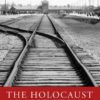
The Holocaust Short Story
By Mary Catherine Mueller. The Holocaust Short Story is devoted entirely to representations of the Holocaust in the short story genre. The book highlights how the explosiveness of the moment captured in each short story is more immediate and more intense, and therefore recreates horrifying emotional reactions for the reader. The main themes confronted in…
Read more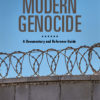
Modern Genocide: A Documentary and Reference Guide
By Paul R. Bartrop. This primary source collection closely examines and analyzes documents related to genocides, focusing on genocidal events from the beginning of the 20th century to the present. Thematically organized into eight sections, each document comes with an introduction and analysis written by the author that helps provide the crucial historical background for…
Read more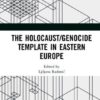
The Holocaust/Genocide Template in Eastern Europe
Edited by Ljiljana Radonić. The Holocaust/Genocide Template in Eastern Europe discusses the “memory wars” in the course of the post-Communist re-narration of history since 1989 and the current authoritarian backlash. The book focuses specifically on how “mnemonic warriors” employ the “Holocaust template” and the concept of genocide in tendentious ways to justify radical policies and externalize the…
Read more
